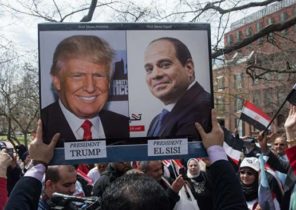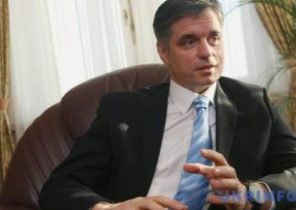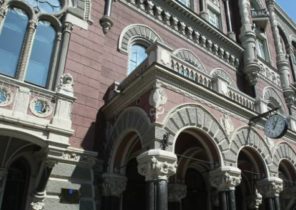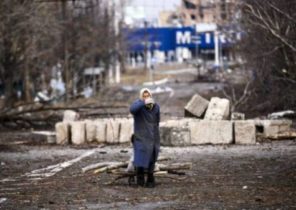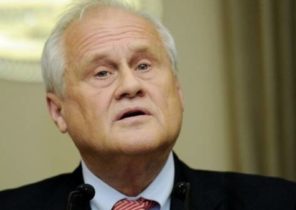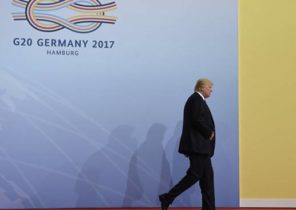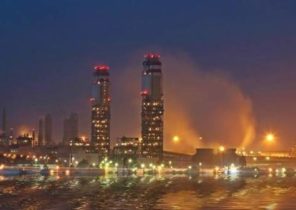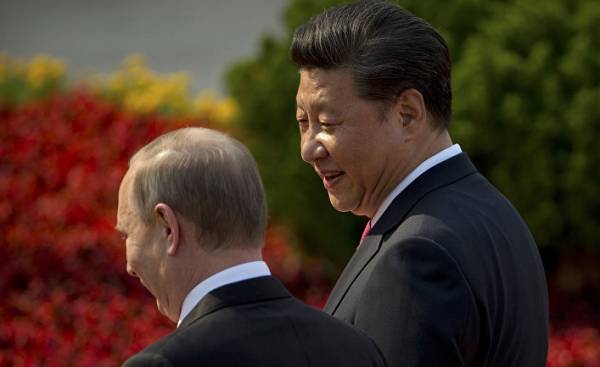
Relations between Russia and China, cloudless as ever, and the leaders of the two countries do not miss the opportunity to demonstrate it. Taking XI Jinping in Moscow on 4 July, shortly before the G20 summit in Hamburg, Vladimir Putin awarded him the order of St. Andrew, which is the highest Russian award, and, incidentally, guarantees the owner of a small pension in 34 412 per month. In the past it was awarded to the leaders of the two friendly States, Kazakhstan and Azerbaijan, Nursultan Nazarbayev and Heydar Aliyev.
Beijing did not remain in debt, and a few days later in Sina Weibo (the Chinese equivalent of Twitter) were banned any criticism of Vladimir Putin: the Russian leader became the first foreign leader who received this protection. “Now, perhaps, the best period in the history of partnership and strategic cooperation between China and Russia, — said XI Jinping in Moscow. — Our countries are working in the spirit of equality, trust and mutual support (…) on the Union of silk road and the Eurasian Union”.
Very important for the Chinese leader the project of creating new trade routes between Asia and Europe on the example of the ancient silk road, covers dozens of countries and kindle appetites with the promised investment of one trillion dollars.
“Ice silk way”
So, may 14, Vladimir Putin was in the front row of 28 leaders who were invited on may 14 in Beijing for a summit on the project “One belt and one road”. “Many of the previous models and factors of economic development is practically exhausted in many countries the crisis and the concept of the welfare state that emerged in the twentieth century — he said from the podium. Today she is not only able to ensure the sustainable growth of welfare, but sometimes keep it at the same level. (…) Protectionism becomes the norm, and its latent forms are unilateral and illegitimate restrictions including on the supply and dissemination of technology”.
In 2014, amid European and American sanctions that were imposed in response to the annexation of Crimea and the armed conflict in Eastern Ukraine, Vladimir Putin turned toward the Chinese neighbors in the hope not only to get out of isolation, but to find an alternative to Western markets. Who came to power in late 2012, XI Jinping, in turn, also faced American criticism and made Russia a target for his first state visit. Since then, the leaders held 22 bilateral meetings in various formats.
“Public demonstrations are important for Chinese and Russian foreign policy, where symbolism plays a very large role, however, in practice, negotiations can take a long time and do not give concrete results,” — emphasizes the expert on Asia at the Carnegie Moscow Center Alexander Gabuev. In Russia the project of the century Chinese friends calls equally of interest and concern. On paper, the new silk road of Beijing aimed primarily at the countries of Central Asia. The main land route that would connect three Chinese region with Europe, passing through Kyrgyzstan, Uzbekistan, Tajikistan, Turkmenistan, Iran and Turkey.
Another route goes via Kazakhstan and the Caspian sea. The third connects Russia, but only in a small area. Planned a long time ago, the project of high-speed rail between Moscow and Beijing (the capital city are separated by a distance of 7,000 miles) so far not much has moved forward. The first segment of the Moscow-Kazan (800 km), which is still going examination, will be released until December 2021…
Remains of the Northern sea route, which goes through the Arctic, where Russia is investing more and more money. It allows to cut off the route of 3,000 km and, therefore, reduce the time of transportation of goods from Shanghai to Rotterdam compared with the route through the Suez canal. This “Ice silk way” as it is called by the Chinese authorities is considerable interest in Beijing. “We look forward to joint development and development of the marine corridors, especially the Northern sea route, in order to strip the Ice of the silk road,” said XI Jinping July 3, “the Russian newspaper”.
Beautiful words
In terms of investment in the framework of “One belt and one road” projects also stalled. Big plans in the area of bilateral trade ($100 billion by 2015) was not achieved (66 billion in 2016), and economic cooperation between the two countries remains largely restricted energy. It took more than ten years of tough negotiations on gas prices to finally sign the contract for the colossal project of gas pipeline “Power of Siberia” (4 000 km). The first deliveries of Russian gas to China, which so far purchased mainly in Turkmenistan, is expected to start in December 2019, said the head of Gazprom Alexey Miller.
“Investment is inhibited due to the bad reputation of Russia among Chinese private investors, lack of information, lack of structural reforms and protection of ownership, constant changes in the rules of the game, falling oil prices and sanctions”, — says Alexander Gabuev. Another obstacle become customs tariffs (between China and Kazakhstan, they were reduced). According to gabuyeva, “in the future, perhaps the signing of free trade agreements, but this process will take years”. Despite all the fine words, the relations between China and Russia still spoils the mistrust in connection with the legacy of the past.
In addition, large projects do not eliminate the risk of tension. Chinese silk road can seriously strengthen Beijing’s influence in a region that Moscow considers its strategic area. Announced in 2010 and officially launched in may 2014 the Eurasian economic Union (Russia, Kazakhstan and Belarus, which are subsequently joined by Armenia and Kyrgyzstan), was conceived by Vladimir Putin as a broad economic, commercial and political space.
“Strengthening of Chinese influence is an inevitable process with which Russia can do nothing, — said Alexander Gabuev. — Anyway, the two countries have no territorial conflicts. The solution of the border issue in 2004 became one of the main achievements of Putin’s foreign policy over the last 17 years.”
